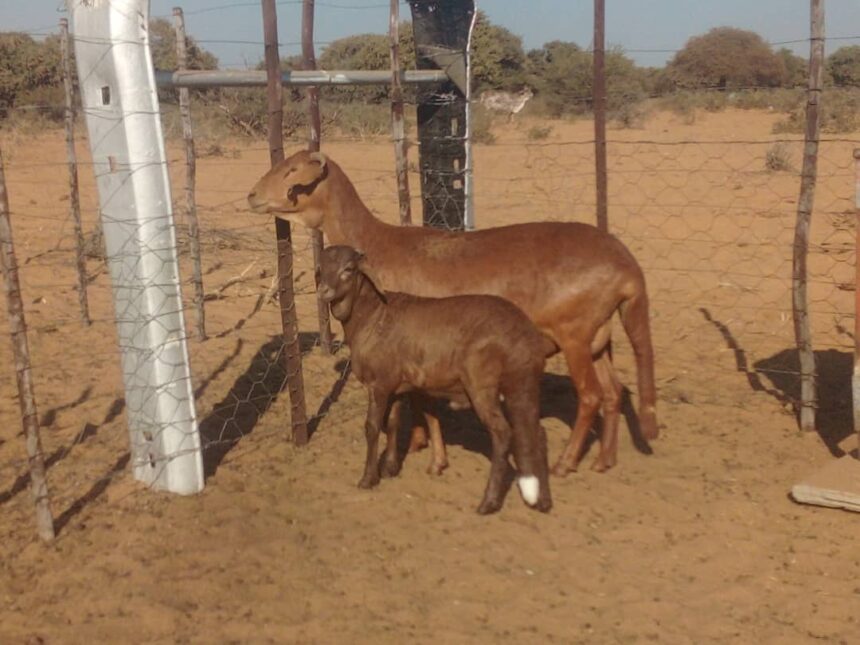Ukaurua Kandee, an ardent stud farmer plying his trade in the communal area of Omaheke, has had to improvise and adjust his farming operations several times to bring the best out of his products.
Although he practises mixed farming with cattle, goats and sheep, it is his love for the Damara sheep that stands out. This love for the breed has turned the communal farmer into one of the most sought-after breeders of the Damara sheep in his area of farming.
Kandee farms at Okomumbonde village, located some 20km east of Otjinene. Being one of the oldest villages in the area, farming at Okomumbonde is no walk in the park as grazing is almost depleted, making stud farming even more challenging.
These are challenges he knows too well, and which he has come to live with as he continues his farming journey.
Having been raised in a farming family where his parents, uncles and brothers all practise farming, it was only natural that he too would one day take the reins of his own farming enterprise.
The farming bug finally bit in 2014 for Kandee, when he decided to set up his own stud farming enterprise – Ondjimba Damara Stud – and chart his own future with his beloved Damara breed.
He bought 10 stud Damara ewes which he brought to Okomumbonde to kick off his farming journey.
“Due to inexperience on best farming practices at stud farming level, I lost five of these ewes and had to rebuild my herd. That did not discourage me as I still regarded myself as being a novice and therefore ready to learn,” he said.
It would take Kandee a few more tries but he eventually saw his herd growing, and so too his confidence in his chosen farming path over the years. Today, he is a registered Damara sheep stud breeder.
He said he chose to farm with the agile Damara sheep due to its ability to forage for grazing at far places, as it has unmatched stamina amongst its peers.
Practising farming at a village like Okomumbonde requires that livestock trek long distances in search of grazing daily, Kandee said.
“It is all about choosing the breed that would produce the best results for you at the least cost. For me, it is the Damara sheep,” he noted.
Okomumbonde, just like many other villages in the vast Omaheke region is besieged with predators, most notably the jackals which prey on small livestock such as sheep and goats.
This has been a great challenge for stud farmers like Kandee, as one never knows if a sheep would return to the kraal in the afternoon or not.
Also, the fact that the area is a communal land has meant that stud breeders have to work twice as hard compared to commercial breeders, to maintain the right blood lines for the animals.
“If you forget a simple thing such as giving water to the sheep upon their return from grazing, they will go to the communal water point. Once there, a sheep on heat can easily mate with any ram there and you have no control over that,” he said.
Kandee is, however, generally happy with the progress of his sheep farming, noting that they have provided a much-needed alternative income stream for him.
“Most of us are heavily reliant on the sale of weaner calves for a living. I have diversified and it is bearing fruit. My stud farming operations bring me good money annually, which allows me to grow my cattle herd and not sell off as many calves.”
and the unemployed to turn to agriculture for a living, noting that there are several opportunities that could allow them to put food on the table.
“Agriculture is no more a profession for the uneducated as it was perceived. It is the future and if you do not get onto the train now, you will be left behind,” Kandee advised.


